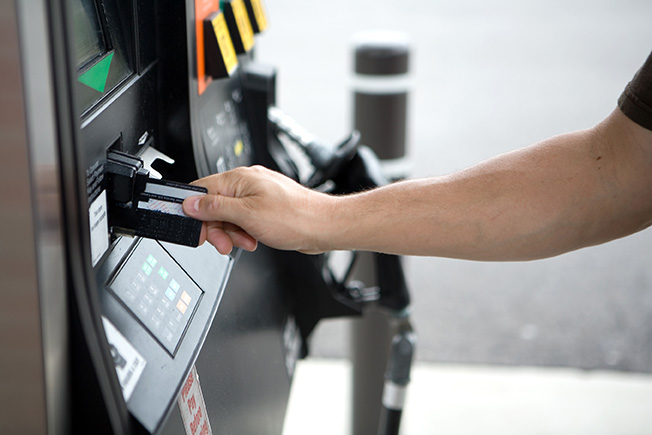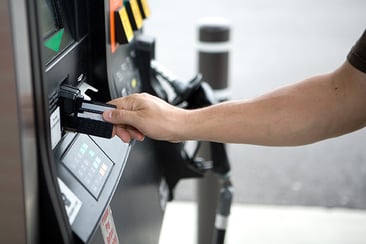Monitoring Fleet Fuel Card Fraud

 There’s a lot for fleet managers to love about fleet fuel cards. They help control, monitor and track fuel expenses and driver purchases. They help automate billing and provide detailed transaction reports. They help reduce time-consuming administrative work. They help increase driver productivity and help save money at the pump.
There’s a lot for fleet managers to love about fleet fuel cards. They help control, monitor and track fuel expenses and driver purchases. They help automate billing and provide detailed transaction reports. They help reduce time-consuming administrative work. They help increase driver productivity and help save money at the pump.
Sounds like a fleet manager’s dream come true, right? Well, yes and no.
Yes, in that fleet fuel cards eliminate many of the day-to-day headaches associated with fuel management, give fleet managers more control, and can help cut fuel costs and boost earnings.
No, if your drivers are using their fuel cards to fuel more than their vehicles and as a result, costing you money.
No fleet manager likes to think that their drivers would use their fuel cards to steal from them—as in purchasing fuel for another driver typically in exchange for cash or making unauthorized purchases—but unfortunately, fuel card fraud happens all the time.
Knowing what measures to put in place to help prevent fuel card fraud and knowing what to look for if you think fraud has occurred are key to protecting your bottom line. With fuel on average 30 percent of a fleet’s total expenses, undetected fraud could be hurting your business more than you realize.
Proactive Prevention
Ideally of course, you want to prevent fraud from happening in the first place. One way to do that is by establishing controls.
Unlike credit cards, fuel cards have purchase controls that vary by provider. For example, cards can be restricted for fuel purchases only, fuel and services, dollars and gallons per transaction, fuel type, fueling time and day, transactions per day, etc.
Establishing controls helps reduce instances of fraud by giving you tighter rein over driver purchases. The most common controls fleet managers deploy are:
• Assign PINs — Require your drivers to enter a personal identification number (PIN) and unit number before they can makes purchases. While it is true that a driver could enter their PIN and unit number to make purchases for another driver, on the card statement from your provider this would be easily traceable, as the PIN would call attention to the driver who was responsible for the extra purchases. Make sure to stress to your drivers the importance of not sharing their PIN with anyone.
• Set limits — Set a daily limit on the amount of money that can be spent per day on fuel and/or services or purchases. Or pre-fund the driver’s fuel card. Limiting access to funds is a very effective method for preventing fraud. With a set amount that can be spent, drivers are more reluctant to help fill up another truck on the road for fear of not being able to complete their own route —which could cost them money and even their job.
Detecting Fraud
If you think fraud has occurred, it’s important to catch it quickly and handle it immediately. Monitoring your statements carefully and knowing what to look for to determine if there has been unauthorized card use is key. Stating the obvious, the longer fraud goes on, the lower your revenue.
Here are some “red flags” to look for in your fuel statements:
• Frequency of fill-ups — If a driver stops multiple times a day or multiple times in one state, an alarm bell should be sounding and questions need to be answered.
• Compare trip report to gallons purchased — By knowing the fuel efficiency of each of your vehicles, you have a good idea of just how much fuel typically is used. That said, if one of your vehicles gets eight MPG and you have a $300 fuel bill for 100 miles driven, you need to do some serious investigating — and fast.
• Compare logs to fuel receipts — Examine all bills and statements and compare them to receipts. Check that everything matches up, so you can be sure you’re paying the correct amount.
When it comes to fuel card fraud the worst thing to assume is that it can never happen to you.
Think of fleet fuel as liquid cash. And if you haven’t done so, think of talking with a fuel management provider to help you better protect it.
Is one of your drivers stealing from you? What controls do you have in place? Are they working? Are your records solid and up-to-date? Are you sure?
What are some of the pros and cons of fuel cards? Download your copy of our free white paper to discover the most beneficial fueling method for your fleet.
